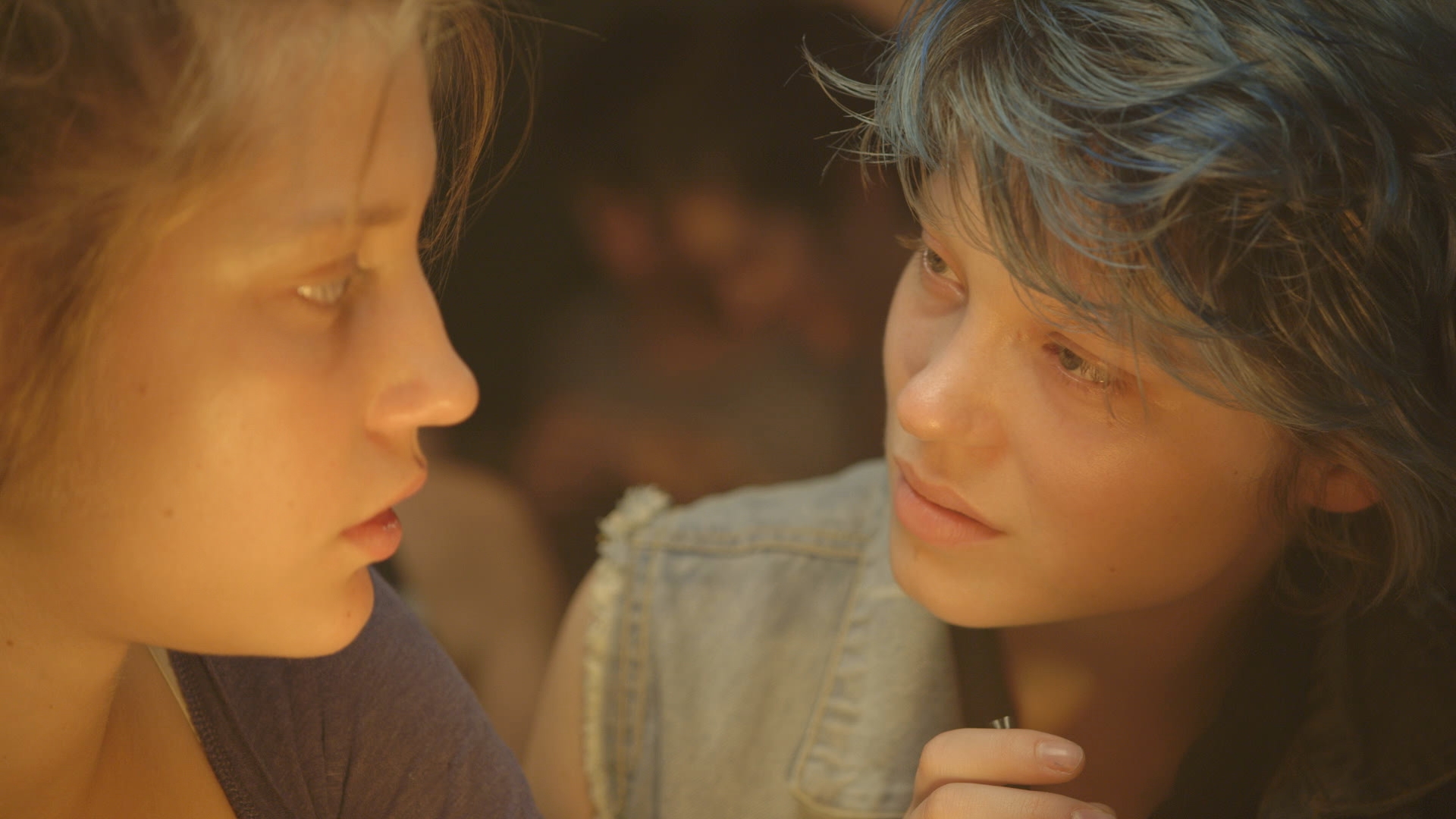CANNES, FRANCE — Time is running out to place bets on Sunday night’s Cannes awards, but the calculus this year seems especially daunting. No consensus frontrunner has emerged; even among the heavyweights, there’s nothing as surefire as “The Tree of Life” seemed in 2011.
Journalists will grasp at whatever clues they can. Jury president Steven Spielberg makes movies about father figures, they’ll say, so he’s certain to give an award to “Like Father, Like Son,” Hirokazu Kore-eda’s pleasingly classical drama of two sets of parents who discover their boys have been swapped at birth.
But it’s almost always a mistake to assume a jury’s choices will echo its members’ own sensibilities. (Remember when Wong Kar-wai gave the Palme to Ken Loach’s “The Wind That Shakes the Barley” in 2006?) The awards are inevitably the result of a series of negotiations and tradeoffs. This year’s jury has more directors than usual — beyond Spielberg, the roster includes Ang Lee, Naomi Kawase, Lynne Ramsay, and Cristian Mungiu — so that perspective may play a role.
Because this sweepstakes is no fun if you don’t play, here are my personal predictions. Bear in mind the festival’s house rules: A film typically wins no more than one prize, unless the second prize is for performances. Also, I can’t find room for Steven Soderbergh’s “Behind the Candelabra.” I wonder if the jury has the same dilemma.
Palme d’Or Abdellatif Kechiche’s “Blue Is the Warmest Color” is the one film that seemed to truly break out of the festival, in the manner “4 Months, 3 Weeks and 2 Days” did in 2007. Kechiche (“The Secret of the Grain“) already had a name on the festival circuit, but he moves to a new rank of directors with this intimately observed three-hour epic following a young lesbian couple (Adèle Exarchopoulos and Léa Seydoux) over several years. The movie makes a familiar arc specific (notably with sex scenes so explicit they had the whole town abuzz). At once grand and intimate in scope, it’s the kind of film that could appeal to each jury member for entirely different reasons.
Grand Jury Prize James Gray’s “The Immigrant” seems to have evenly split audiences on whether it’s a masterpiece or an immaculately made, thematically undercooked would-be classic, so this award (for second place, despite its title) could bridge the difference between the factions. It also allows the jury to honor traditional craft while giving the Palme to something more radical.
Jury Prize Sort of a “flawed but interesting” prize, this award might go to Paolo Sorrentino’s “The Great Beauty,” a lush and lavish homage to “La Dolce Vita” that appropriates Fellini’s sensibility to an almost unseemly degree. At two and a half hours, it boasts the kind of grand-scale ambition and eye-popping design that practically beg for a citation somewhere. Sorrentino won this award for “Il Divo” in 2008.
Best Director My own admiration may be blinding me, but Jia Zhangke’s fluid use of long takes and stunningly lustrous digital cinematography make “A Touch of Sin” a director’s movie all the way. If it gets any award at all, it’s likely to be in this category.
Best Actress Many critics are predicting Marion Cotillard, who learned 20 pages of Polish dialogue for “The Immigrant” (and whom our own Michał Oleszczyk says did a better job than any non-native speaker he’s heard). But Adèle Exarchopoulos, who delivers a minutely observed, sexually frank performance as a teen discovering first love in “Blue Is the Warmest Color,” is the most likely choice. When the lights went down on Wednesday night’s screening, I’d wager most of the journalists in attendance had never heard of her. By the time the movie ended three hours later, critics spoke of her as though she were a household name. There’s no better buzz than that. (Exarchopoulos may end up sharing the award with her more established co-star — and onscreen lover — Léa Seydoux.)
Best Actor Oscar Isaac for “Inside Llewyn Davis.” Spielberg is in a bit of a bind with regard to the new Coen brothers movie: He’s worked with the filmmaking duo just recently, having served as an executive producer on “True Grit.” Furthermore, honoring the Coens at this point — given that they’ve already won the Palme for “Barton Fink” and are among the most established auteurs in the lineup — would almost be like taking the award from someone else. Yet it’s hard to deny that “Inside Llewyn Davis” was one of the most engaging and discussed films of the festival. Solution: Honor Isaac, the breakout star, who does all his own singing. Or maybe declare a tie and make this a category of singers musicians: Michael Douglas‘s turn as Liberace in “Behind the Candelabra” is Isaac’s closest competition.
Best Screenplay Spielberg is said to have loved Asghar Farhadi’s Oscar-winning “A Separation,” and “The Past” is practically a sequel. A divorce drama in which nearly every scene is predicated on some kind of reversal, the movie’s architecture relies heavily on the writer’s sleights of hand. It might not be the most original way to honor Farhadi, whose “Separation” script was amply garlanded two years ago. But in a year with such stiff competition, it may be enough.












